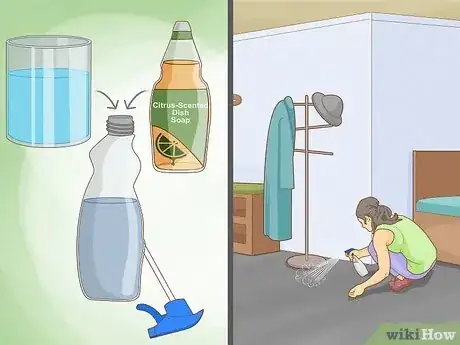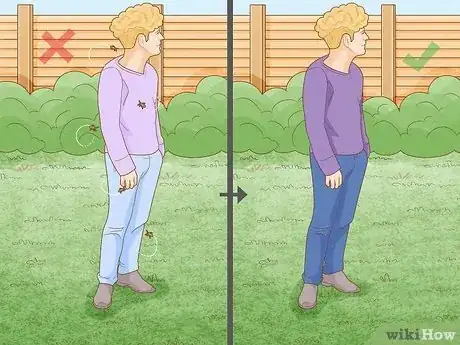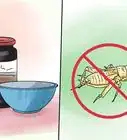This article was co-authored by Elmer Bensinger and by wikiHow staff writer, Hannah Madden. Elmer Bensinger is a Pest Control Specialist with Eden Advanced Pest Technologies in Spokane, Washington. With over 20 years of experience, Elmer specializes in integrated pest management and products such as insecticides and rodenticides. He studied business at South Puget Sound Community College.
There are 7 references cited in this article, which can be found at the bottom of the page.
This article has been viewed 13,717 times.
Love bugs typically show up twice a year, and while they don’t bite, they are really annoying to deal with. If you live in a humid place, you’re probably familiar with these flying black insects. Fortunately, there are techniques you can use to get rid of love bugs and deter them from your home, yard, and car. Read through this article to learn how you can repel love bugs and keep them away all season long.
Steps
Spray entrances with insect spray.
-
Insect sprays will discourage the love bugs from entering your home. Pick up an insect spray from the hardware store, and spray it around all your entrances, including your windows and your doors. Look for an insect spray that contains citrus, clove, or rosemary oil, since love bugs really dislike those scents.[1] X Research source
- Unfortunately, love bugs aren’t deterred by insect repellents that contain DEET or citronella.[2] X Research source
- Love bug season usually happens twice a year: first between April and May, and then again between August and September. These critters have black bodies and red heads, and they’re pretty small: only 6 to 9 mm in length.
Make your own love bug spray with dish soap.
-
Creating your own spray is easy, and you can use food-safe ingredients. If you don’t want to blast your yard or home with chemicals, you can create your own insect spray out of products you might already own. Fill up a spray bottle with water, then add a few drops of citrus-scented dish soap and a splash of mouthwash (for the minty smell). Mix it up and then use the spray in your home or on your plants.[3] X Research source
- Reapply the spray once a day during love bug season.
- This bug spray is safe to use on your skin, so you can spritz yourself with it as an insect repellant if you need to.
Run fans in your home.
-
Fans discourage love bugs from landing on surfaces. While it isn’t a perfect solution, running a fan on high is sometimes enough to blow love bugs away and keep them from landing on things. Use a ceiling or standing fan to circulate the air in your home to encourage love bugs to find a new place to land.[4] X Research source
- Try pointing the fan at walls and shelves where love bugs are most likely to land. This can help deal with infestations inside of your home.
Mow your lawn at least once a week.
-
Love bugs lay eggs in tall grass, so mow it short. Your grass tends to grow faster in the warmer months, so mow your lawn at least once a week.[5] X Research source This will keep your lawn short enough so that the love bugs have a tough time laying eggs in it.
- If you have a garden, water it every day—the water makes it harder for love bugs to lay their eggs.
- Try to keep any vegetation at least 1 ft (30 cm) away from your home, too. This prevents pests from getting easy access to your residence.
Turn your car or mower off right away.
-
Love bugs are attracted to the heat from idling engines. When you get home, try not to leave your car idling in the driveway—instead, turn it off so the engine can start cooling down. Do the same thing with your mower as well, since the heat from its engine might attract a swarm.[6] X Research source
- Love bugs are also attracted to the exhaust fumes that come out of your car.
Clean up yard debris right away.
-
The insects are attracted to dead leaves and grass. If you’re doing yard work, rake up any yard debris and dispose of it in your yard debris bin. The warm, decomposing matter is the perfect material for love bugs to lay their eggs in, so don’t give them the chance.[7] X Research source
Wear dark colored clothing.
-
These insects seem to gravitate toward lighter colors, so avoid them if you can. When you head out during love bug season, throw on a dark-colored shirt and pants to keep the bugs away from you. They’re more attracted to light colors, so wearing dark ones might let you fly under their radar.[8] X Research source
Use a grill screen to protect your car’s radiator.
-
Screens and netting help protect your car from love bugs. Since love bugs are attracted to cars, they may get sucked into your car’s radiator, which can lead to overheating issues. Attach a grill screen or netting to the front of your car to keep the love bugs out of there during the love bug season.[9] X Research source
Wash your car as soon as possible after a love bug swarm.
-
Washing your car ensures love bugs don’t damage your paint. If you’ve just driven through a love bug swarm, you probably notice their bodies or their eggs all over the front of your car. Try soaking the front of your car in water for 10 to 15 minutes, then scrubbing your car with soap and water.[10] X Research source
- Love bugs are mildly acidic, meaning their dead bodies can eat through your car’s paint if left there for too long.
Wax your car before love bug season.
-
Waxing your car makes it easier to wash love bugs off. While the wax won’t do much to deter love bugs, it will make the cleanup much easier. Head to a car wash and get a waxing service before love bug season starts to help their dead bodies slide right off.[11] X Research source
- Wax also helps protect your car’s paint from damage.
Paint after love bug season is over.
-
Love bugs are attracted to fresh, wet paint. While no one is quite sure why, love bugs absolutely love when people paint their homes. If you can, try to hold off on any painting projects until love bug season is over.[12] X Research source
- If you absolutely have to paint, try to stick to darker colors. Love bugs are more attracted to light colors, especially white.
Host events after sundown.
-
Love bugs are most active during the day, so you can avoid them.[13] X Trustworthy Source EDIS Electronic database of the University of Florida Institute of Food and Agricultural Sciences's peer-reviewed articles Go to source If you’re planning on hosting a garden party or a BBQ, wait until the sun sets to avoid love bugs entirely. These pesky critters sleep at night, so you’re much less likely to encounter them in the evening.
Contact an exterminator if you need to.
-
Professional exterminators can use foggers to kill adult love bugs. However, keep in mind that typically, repeat treatments will be needed to keep love bugs at bay for the entire season. If your home or your yard is overrun with love bugs, call a professional to come and assess your home.[14] X Research source
- Love bugs aren’t dangerous to humans or animals, so they’re more of a nuisance. If you want to avoid using insecticides in your home, you can always just wait for love bug season to end.
You Might Also Like

 The Best Ways to Get Rid of Cockroaches in Your Home
The Best Ways to Get Rid of Cockroaches in Your Home
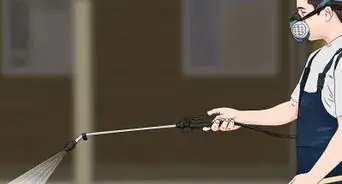

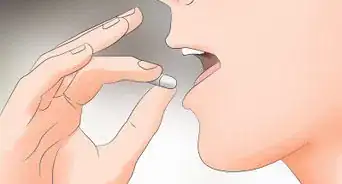
 How to Drive Away Gnats for Good: Easy DIY Methods
How to Drive Away Gnats for Good: Easy DIY Methods
 Do You Have Animals in Your Walls? Dealing with Animals in Your Walls or Attic
Do You Have Animals in Your Walls? Dealing with Animals in Your Walls or Attic
 The Best Ways to Get Rid of Silverfish Once and for All
The Best Ways to Get Rid of Silverfish Once and for All
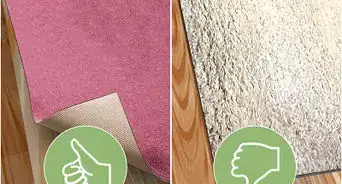

 How to Remove Bats from Your Home
How to Remove Bats from Your Home
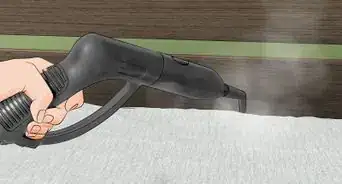

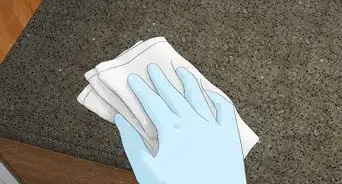
References
- ↑ https://www.wdbo.com/news/local/want-safely-get-rid-pesty-love-bugs-here-are-some-useful-tips/dclHyR6G01VhUtCQS09WEO/
- ↑ https://extensionentomology.tamu.edu/publications/lovebugs/
- ↑ https://www.wdbo.com/news/local/want-safely-get-rid-pesty-love-bugs-here-are-some-useful-tips/dclHyR6G01VhUtCQS09WEO/
- ↑ https://ipm.ifas.ufl.edu/community/Lovebugs.shtml
- ↑ https://www.wdbo.com/news/local/want-safely-get-rid-pesty-love-bugs-here-are-some-useful-tips/dclHyR6G01VhUtCQS09WEO/
- ↑ https://www.floridatoday.com/story/news/local/environment/2019/05/10/lovebugs-appear-here-today-gone-tomorrow/1162559001/
- ↑ https://www.wdbo.com/news/local/want-safely-get-rid-pesty-love-bugs-here-are-some-useful-tips/dclHyR6G01VhUtCQS09WEO/
- ↑ https://www.wdbo.com/news/local/want-safely-get-rid-pesty-love-bugs-here-are-some-useful-tips/dclHyR6G01VhUtCQS09WEO/
- ↑ https://extensionentomology.tamu.edu/publications/lovebugs/
- ↑ https://extensionentomology.tamu.edu/publications/lovebugs/
- ↑ https://www.abcactionnews.com/news/state/love-bugs-are-invading-florida-this-cleaning-hack-will-keep-their-guts-off-your-vehicle
- ↑ https://entnemdept.ufl.edu/creatures/misc/lovebug.HTM
- ↑ https://edis.ifas.ufl.edu/publication/IN694
- ↑ https://extensionentomology.tamu.edu/publications/lovebugs/
About This Article


